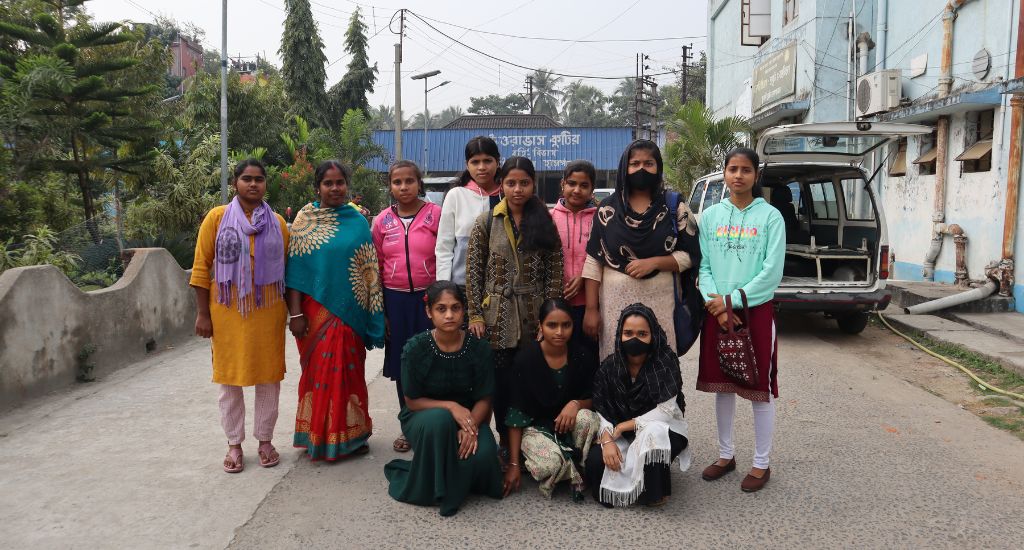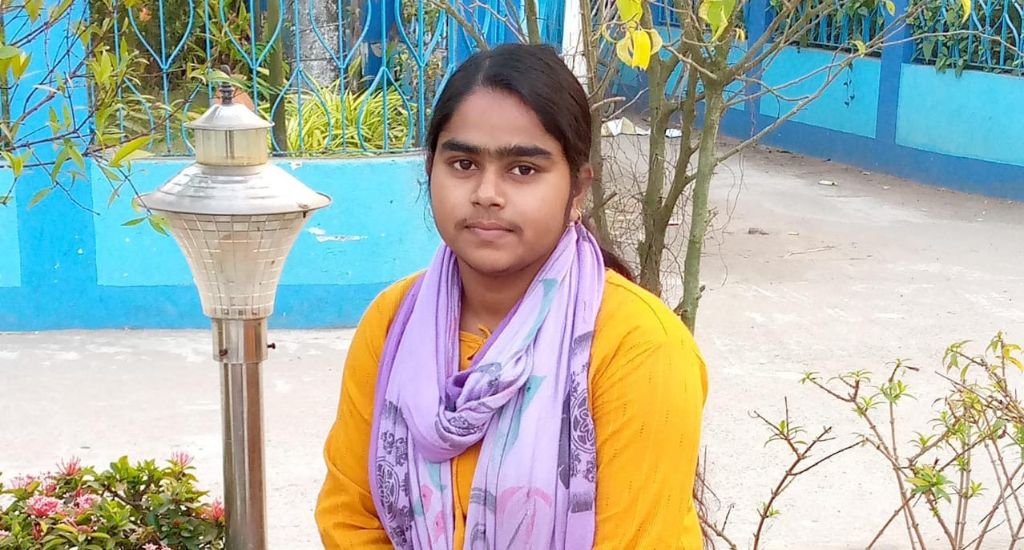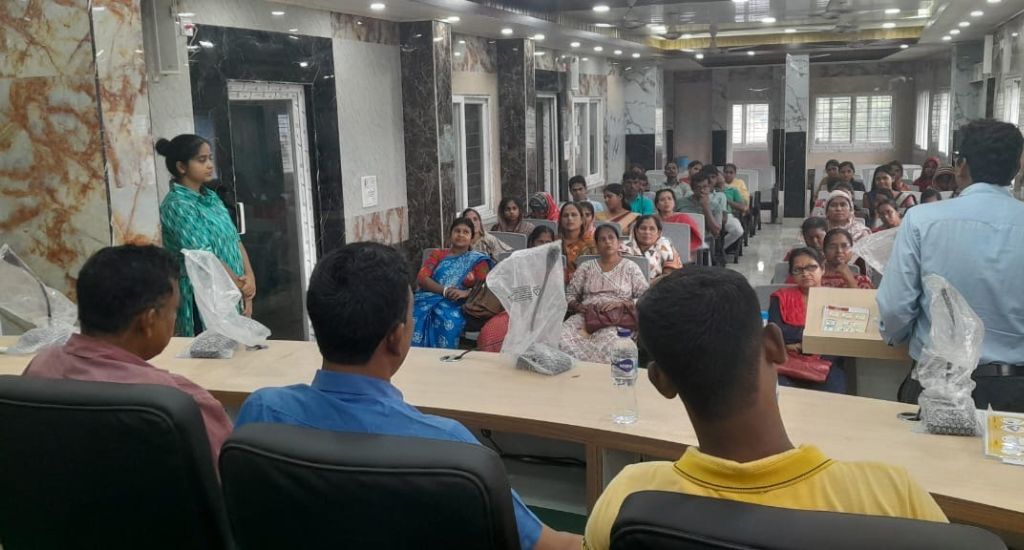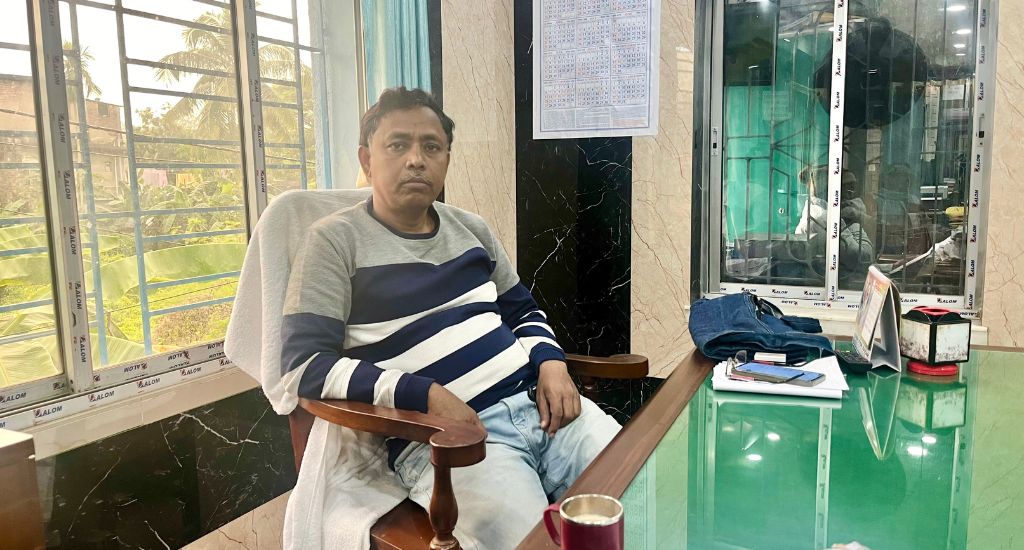
Bengal teens fight for safer menstrual waste disposal
A group of young women in rural Bengal is redefining empowerment by challenging stigma surrounding menstruation, paving the way for a more inclusive and enlightened society.

A group of young women in rural Bengal is redefining empowerment by challenging stigma surrounding menstruation, paving the way for a more inclusive and enlightened society.
A WhatsApp group named “Friends Forever” serves as a platform for young women like 18-year-old Parvina Khatun and her companions, Jajmina and Itu, to share more than just “good morning” messages and light-hearted banter. Their conversations delve into discussions that transcend the virtual realm — feminine hygiene and reproductive health, shedding light on the challenges including menstrual waste disposal faced in their villages in West Bengal’s South 24 Parganas district.

The group comprises women belonging to different age groups, religious backgrounds and castes. However, what unites them is their committed involvement in raising awareness and advocating for action from government agencies on issues concerning women. They often take leadership roles in meetings organised by IPAS Development Foundation – an organisation working to improve sexual and reproductive health facilities – to discuss issues like the stigma surrounding menstruation.
A few months ago, Parvina from Barakara village in Kulpi block and nine other young women approached the Kamarchak gram panchayat pradhan with a crucial demand — the installation of a sanitary waste disposal facility. Their efforts bore fruit in October 2023 when panchayat chief Gobinda Mandal accepted their demand and allocated Rs 20 lakh for the facility in the budget.
“We are trying to build it within a year,” Gobinda Mandal said.
Also Read: Pad perfect – championing menstrual hygiene

The struggle was real, grounded in the daily challenges faced by women grappling with unhygienic sanitary practices. Parvina highlighted the challenges they face, from makeshift menstrual waste disposal methods attracting wildlife to the risks of environmental pollution.
“Many women opt to bury sanitary waste in shallow pits near their homes. But dogs and wild boars tend to dig it back up. Burning the pads contributes to air pollution, while dumping them in water bodies leads to contamination,” she said.
The plight of rural women grappling with the disposal of sanitary napkins struck a chord with these young advocates.
“It becomes harder for us to dispose of our sanitary waste in a hygienic manner due to the increasing population,” said 18-year-old Saniya Parveen.
Also Read: Uninhibited menstruation talk on “Hello Saathi” helpline

Menstrual hygiene is a serious, and often emotional, subject in rural India, where menstruation is spoken of like a secret. Rakhi Tanti, a 28-year-old community volunteer, reminisced about a time when menstrual hygiene was shrouded in myth and misconception.
“There used to be a misbelief that pads were laced with medicine to render women infertile. People would stay away from it,” she said. Some even bathed in ponds during menstruation, leading to infections.
Through tireless efforts and the involvement of Accredited Social Health Activists (ASHA workers), the tide began to turn. Sanitary pads were made accessible and available free of charge. With initiatives such as installing sanitary napkin vending machines in local schools, efforts are underway to destigmatise menstrual health discussions among adolescents.
Rakhi said the journey of overcoming stigma and raising awareness hasn’t been easy. Initially, rural women were hesitant to discuss their menstrual or reproductive issues with male doctors.
“But the learning curve has brought positive outcomes. Look at these young women beside me,” she gestured. “Just a year ago, they wouldn’t have felt confident speaking up at the gram panchayat. But they’ve learned not to give up.”
For Riya Mandal, the youngest among them at 14, empowerment transcended mere rhetoric. Armed with knowledge, she embarked on a journey to enlighten her siblings, friends, and cousins.
Also Read: Village girls shed fear and shame about menstruation
“This has boosted my confidence,” Riya said, while Saniya added: “Even our fathers and brothers have become aware… and let us freely attend our meetings.”

According to panchayat pradhan Gobinda Mandal, the idea of rural development needs a rethink.
“It is not just about taps and electricity connections. Even today, although less than before, teen marriage and teen pregnancy are challenges we face in this area,” he said.
Data from the latest National Family Health Survey revealed that child marriages in rural areas of West Bengal reached a significant 48 percent, while the rural rate of teenage pregnancies in the state was recorded at 19.6 percent.
For Parvina and her peers, advocating for a sanitary waste disposal facility marks just the beginning of a larger quest for social autonomy and freedom. Their aspirations extend beyond waste management, encompassing ambitions for higher education and delayed marriages.
Also Read: Pad women of Assam start menstrual hygiene movement
The lead image at the top shows the young women changemakers of Kulpi block. (Photo by Sukanya Roy)
Sukanya Roy is a freelance journalist based out of Kolkata. She is a Village Square Fellow in 2023.